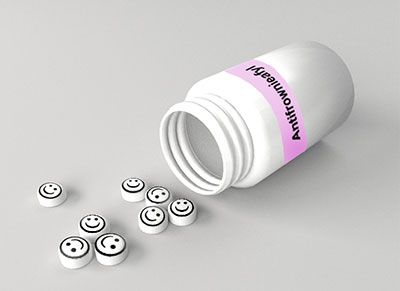
In my last post, I wrote about proper capitalization of disease names. To review, eponymous diseases are named after people or places (Alzheimer’s, Hantavirus) and should be capitalized as proper names. Other disease names and terms, like diabetes and virus, are common nouns and should be lowercase. Diseases may also be referred to by initialisms, such as COVID and AIDS, but although initialisms are made up of capital letters, the diseases they stand for are not capitalized unless they are eponymous.
In today’s post, I will write about a related topic: capitalization of medication names. The rule is simple, and it’s essentially the same as the rule for capitalizing diseases and most other things: Capitalize medication terms that are made up of proper names, in this case, brand names or trade names, and use lowercase for generics and other medication terminology, such as classes of medications (antidepressants).
Get a free sample proofread and edit for your English document.
Two professional proofreaders will proofread and edit your English document.
A little background on naming medicines: When a new drug is developed, it is typically produced and sold by a drug company that gives it a unique name for marketing purposes. Since the 1960s, the United States Adopted Name Program has been responsible for giving generic names to all trade drugs and ingredients. The generic name is actually created based on a sort of formula, with a suffix that refers to how the drug works (that’s why a lot of drugs have similar endings, like -afil) and a prefix that avoids certain letters (for ease of use in the international market) and marketing and medical terms. Once a generic drug is released, the generic name may become more familiar to consumers, but often the trade name sticks in people’s minds for years.
Use Generic Names in Most Cases (in Lowercase)
One caveat: Although it’s best to use the generic name, you may want to provide the brand name in parentheses if you think it will help your readers better understand:

Many patients take atorvastatin (Lipitor) to help lower their cholesterol and reduce their risk of heart disease.
Use Brand Names When Needed (in Uppercase)
When the brand of a medication is important (as in when you are discussing marketing or comparing different versions of the same drug), go ahead and use it instead of the generic. Again, if you are not sure if what you are dealing with is a brand name, check the dictionary.
Types/Classes of Medications Should Be in Lowercase
Finally, types or classes of medications should be lowercase. So use lowercase for vasodilators, anesthetics, beta-blockers, antifungals, antiemetics, antidepressants (Notice a theme here with medicines starting with anti-?), and many other terms. If you are mentioning a medication just briefly and/or once or twice in your writing, it may be appropriate to refer to it by its type/class instead of the name, whether generic or brand.
And here’s one truly final note for any style guide sticklers out there. The guidelines outlined above are in agreement with the style guides you are most likely to use to write about anything medical, APA, AMA, and Chicago.
Sarah P.
Get a free sample proofread and edit for your English document.
Two professional proofreaders will proofread and edit your English document.
Get a free sample proofread and edit for your document.
Two professional proofreaders will proofread and edit your document.
We will get your free sample back in three to six hours!